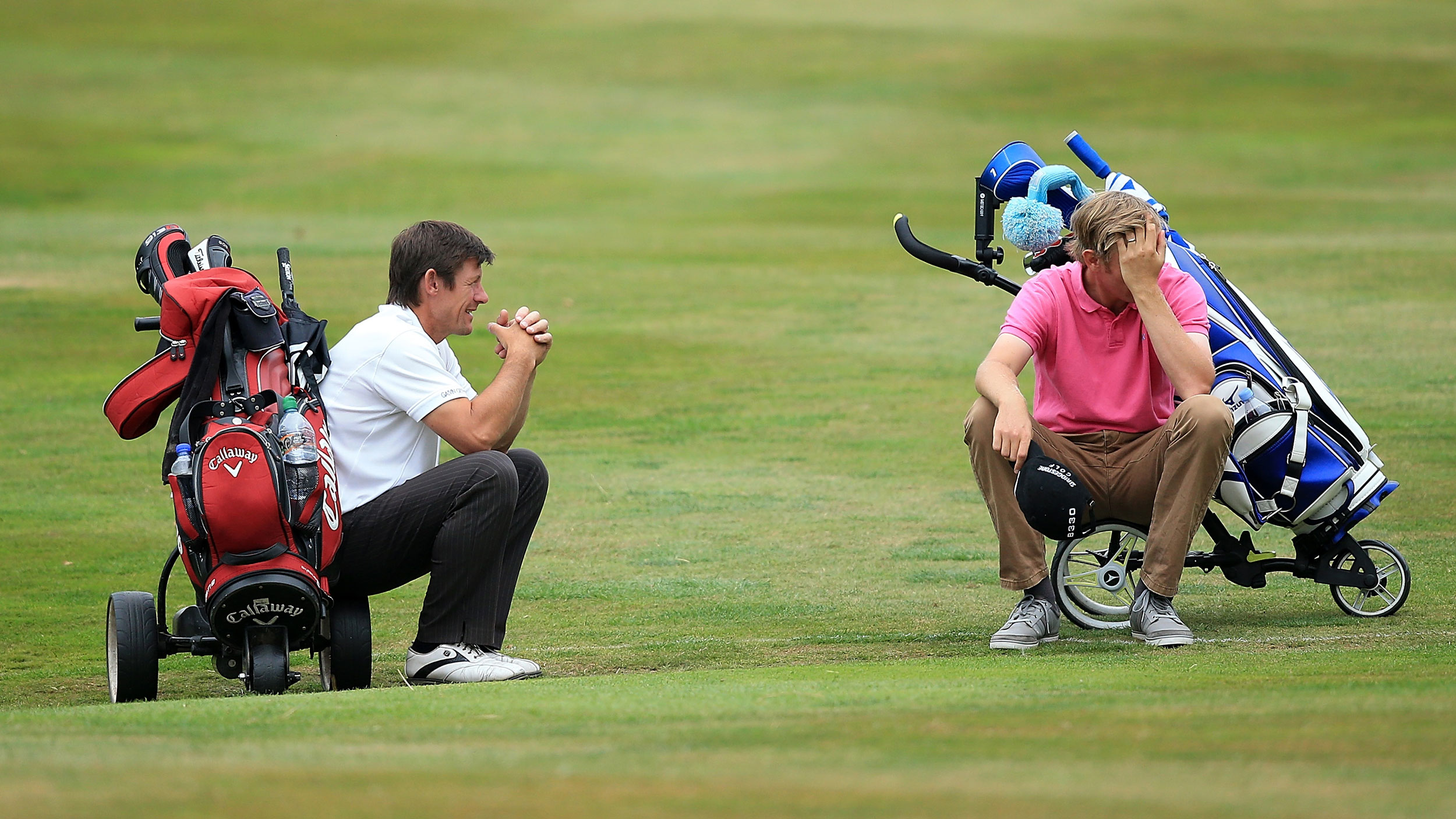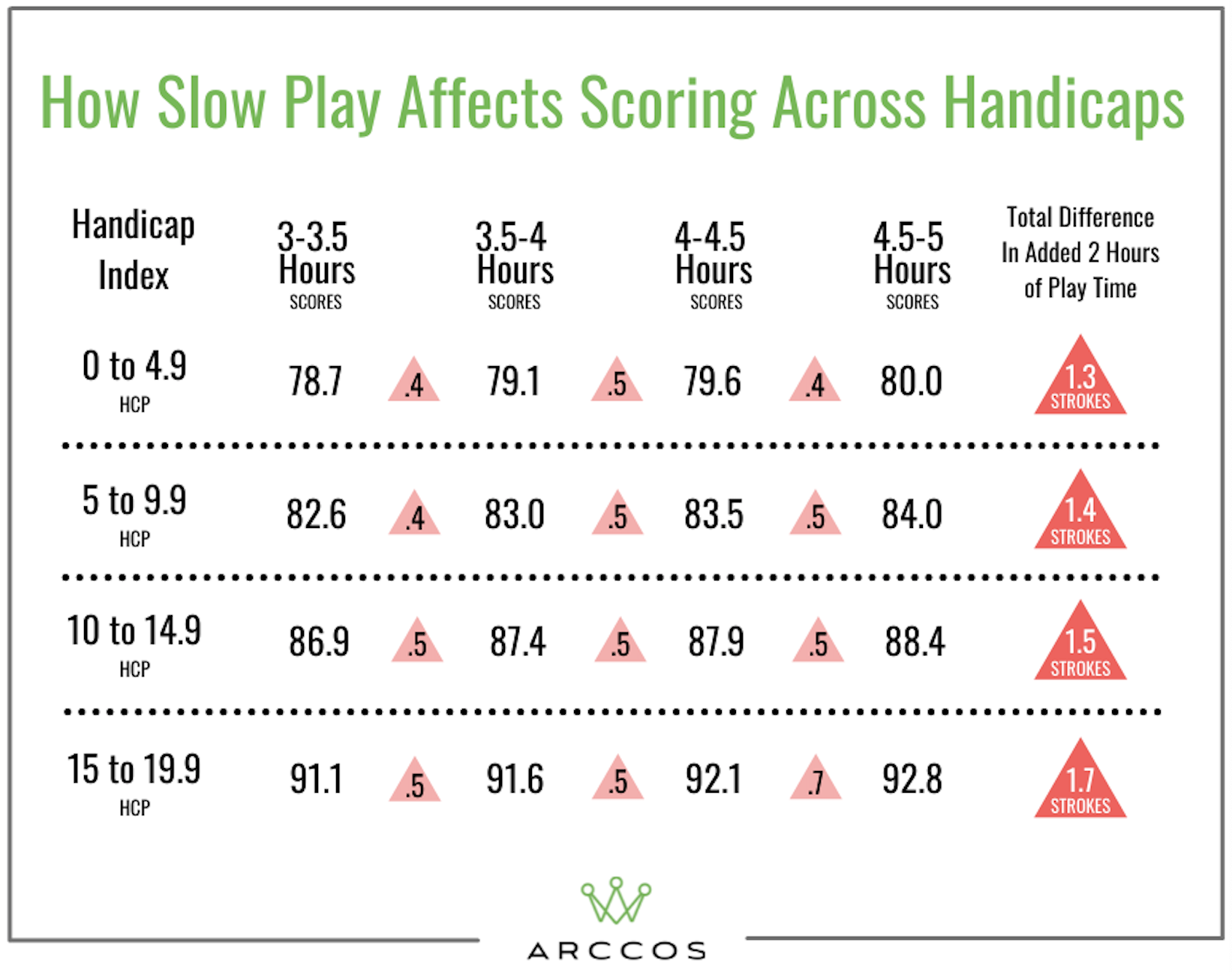Slow Play DOES Make You Score Worse: And The Stats That Back It Up
Data from Arccos shows just how slow play can negatively impact your scores


We know that slow play is bad for the game as a whole but new statistics from Arccos Golf confirms that it also makes you play worse. Our video talks through exactly how...
Comprehensive data for handicaps ranging from scratch to 20 shows that slow play has a negative impact on scores for golfers of all abilities, with rounds that take 4.5-5 hours costing golfers the most strokes. For every half hour extra on the course, golfers are impact by around 0.4-0.7 strokes, with 4.5-5 hour rounds costing golfers between 1.3-1.7 strokes compared to a round that was 3-3.5 hours.
The data shows that higher handicaps are impacted more by slow play, with 15-19.9 handicappers taking an extra 1.7 strokes when out on the course for 4.5-5 hours. This is 0.4 strokes more than handicappers below five, which are impacted by 1.3 strokes when playing a slow round. Handicappers from 5-9.9 are impacted by 1.4 strokes and 10-14.9 handicappers play 1.5 more shots in the longer rounds.
The highest stroke increase per extra half hour spent on the golf course comes for 15-19.9 handicappers when rounds enter the 4.5+ hour range. Golfers of this ability take 0.7 more strokes when playing a 4.5+ hour round compared to 4-4.5 hours. This can be down to many reasons but a primary factor will likely be concentration. By comparison a 0-4.9 handicapper is losing just 0.4 strokes.
There are factors that naturally affect pace of play like waiting for groups ahead, searching for lost balls and the length of the course, although the breakdown of course length for rounds that are 4.5- 5 hours is the same as rounds that are 3-3.5 hours. The weather was the only external factor that wasn't taken into account within the data set.
However, all data points to the trend that higher handicap golfers play worse when rounds take longer, with handicappers below 5 managing to deal with slow play ever-so-slightly better.
Take a look at the data for yourself:
Subscribe to the Golf Monthly newsletter to stay up to date with all the latest tour news, equipment news, reviews, head-to-heads and buyer’s guides from our team of experienced experts.

Quite simply the answer is - play faster and you'll score better, especially if you play off a higher handicap.

Elliott Heath is our News Editor and has been with Golf Monthly since early 2016 after graduating with a degree in Sports Journalism. He covered the 2022 and 2025 Masters from Augusta National and was there by the 18th green to watch Rory McIlroy complete the career grand slam. He has also covered five Open Championships on-site including the 150th at St Andrews.